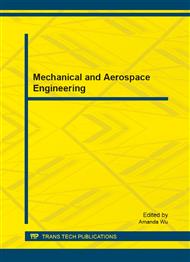p.261
p.267
p.273
p.279
p.284
p.288
p.292
p.299
p.305
Theoretical and Experimental Study on Oil-Water Two-Phase Flow in a Downhole Venturi Meter
Abstract:
This paper presents a study on an oil-water two-phase flow model in a downhole Venturi meter by theoretical calculation, numerical simulation and experimental testing. The flow field and pressure characteristics with different flow and oil-water ratios in Venturi tube are investigated. It is found that the flow is stratified in the Venturi tube, the water phase accumulates in the tube center and the oil phase concentrates on the wall; the pressure drop is increased with flow; theoretical and numerical results are verified by experimental data.
Info:
Periodical:
Pages:
284-287
DOI:
Citation:
Online since:
November 2012
Authors:
Price:
Сopyright:
© 2012 Trans Tech Publications Ltd. All Rights Reserved
Share:
Citation:


